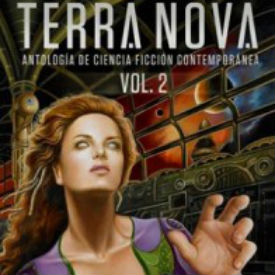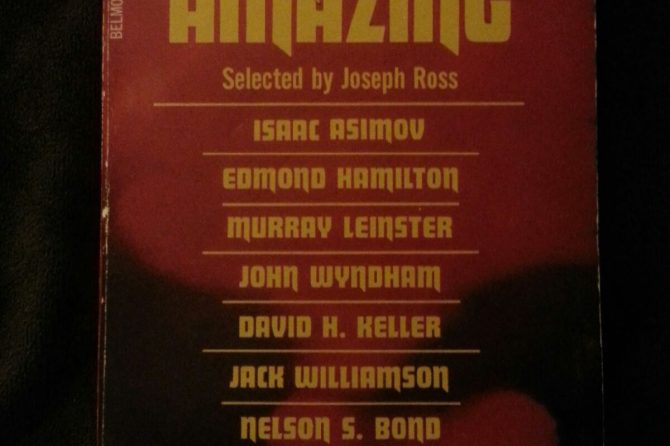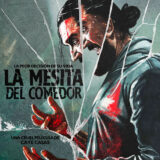Who decides what makes a good book? How does an editor know what readers will want? A writer’s friends and family might thrill at every new story but it still has to impress an agent, editor, publisher, reviewer and reader before it’s considered successful.
Popular genres can fluctuate and morph, so that by the time you get a good draft of that vampire story and start flogging the manuscript to publishers, the market is saturated with vampires and readers are clamoring for another type of monster or hero.
It’s enough to make a writer want to pack it in and get a retail job.
No, not really. For those of us whose heads are always full of imaginary people doing extraordinary things, not writing is not an option.
Most of the first books we have get chewed, drooled on and otherwise mangled from repeated use. We demand the same bedtime stories over and over, and our parents – whether they like it or not – will read them to us just so we’ll go to sleep. Why this fascination with stories? Is the real world not entertaining enough that we have to make up stuff?
Children will generally tell you a story if you ask for one. They like to share their favorites. They act them out. They draw them with crayons. Sometimes they laboriously write them down on sheets of paper that are then stapled into little story booklets. These are prized by moms and grand-parents alike.
Then school starts and most of them have all that fanciful creativity shoved aside by the sheer weight of material crammed into their heads in the name of education. Giant tomes of facts and dates to be memorized, a homogenized curriculum that doesn’t account for brilliance or anyone whose brain is wired differently.
Most of my high school learning was mind-numbingly boring until my eleventh-grade French teacher told me I wrote well. Everyone made fun of his annoying squeaky voice, his frizzy hair and his pear-shaped boyfriend, but that all changed for me with those few words he’d penned across the top of a story I’d written. He became a sort of mentor, and I did my best to ignore the fact that he smelled bad. I applied myself to every assignment he saw fit to throw my way and craved his feedback so I could do better next time.
I feel sorry for people who don’t read for pleasure. The world is crammed with fantastic stories and they may never read anything more complex than the back of a cereal box. I have friends whose reading is limited to social media, instruction manuals and current affairs. They have no patience for fiction and tend to be uptight and sad in general. They couldn’t suspend disbelief if the Tardis or a Pernese dragon appeared on their front lawn. They’ve lost that childlike wonder for the fantastic.
My barely educated father taught me to read when I was four, using the daily comics. I became a voracious reader and worried that the library would run out of books. When I made that wondrous transition out of the children’s section and into the infinite shelves of the upstairs library, I was fascinated and awed at the variety and sheer quantity of books that I was now allowed to read. How had all these people managed to get their stories into a book? Who made the actual books? I wanted to write library books too.
The earliest I remember having stories to tell is when I was ten and put on puppet shows for my siblings and the neighborhood kids. Most of the time I made it up as I went along but that didn’t matter to an audience whose average age was five. We made puppet stages out of cardboard boxes and bed sheets. The puppets themselves were few, and tattered, but had a supporting cast made up of random stuffies, paper dolls and Barbies.
My audience didn’t care if the plot was an obvious rip-off of a popular fairy tale. I was more likely to keep their attention if most of the story line was familiar. The only problem came when they kept requesting the same stories and I was ready for something new. I’ve never known a kid who wouldn’t happily watch a favorite movie a bjillion times. That’s the thing with stories; they touch a place inside of us that we want to go to again and again.
I learned to play the guitar in high school and found a new way to tell a story. This involved a lot more angst and cheesy lyrics than I care to remember but writing songs satisfied my need to express what was becoming a busy place inside my head. It was always filling up with stories and strange, new people that just wouldn’t shut up until I wrote down what they had to say.
Puppets and music served as my main literary outlets for years until my characters became too complex for puppetry and the stories swelled and grew and couldn’t be confined within the structure of a song. There was an uncomfortable transition when I couldn’t figure out how to tell a story without a puppet or a guitar in my hand until I realized that maybe people might like to read them, just like any other story.
I don’t think I’ll ever be able to stop telling stories. Any time I’ve taken a break from writing to pursue other creative outlets my head gets full of new people who annoy me by interacting with existing characters and messing up their storylines. I just hate having to break up those fights but they get their point across so I pick up the pen again and get back to work.
The first stories I wrote are long gone now, torn up in frustration or lost after too many moves, but I tell myself that they were just exercises leading up to what has now become a vocation. They were my baby steps into what has grown into a compulsive habit that helps keep things quiet in my head.
Well, at least until the next voice whispers: “What if?”
“There is no agony like having an untold story inside you.”
– Zora Neale Hurston











As someone who has always loved stories and puppets and writing, I can totally relate!
And I had many, many stories passed down to me by my immigrant grandfather who only had the equivalent of a fourth-grade education. So maybe there's something to be said for over-educating – or for putting more emphasis on facts than on fiction.
Great post!
Morgana, it sounds like you have a lot of stories to pass on…should I keep an eye out for your name on the bookshelves?
Thanks for the great comment 🙂
It's hard not to go into full puppet mode when I'm visiting someone whose kids have them. I don't even need a real plan since the puppet tends to become its own character and leads the way to the story…
A puppet can tell wonderful stories always! 🙂